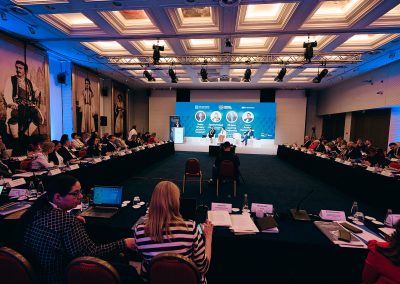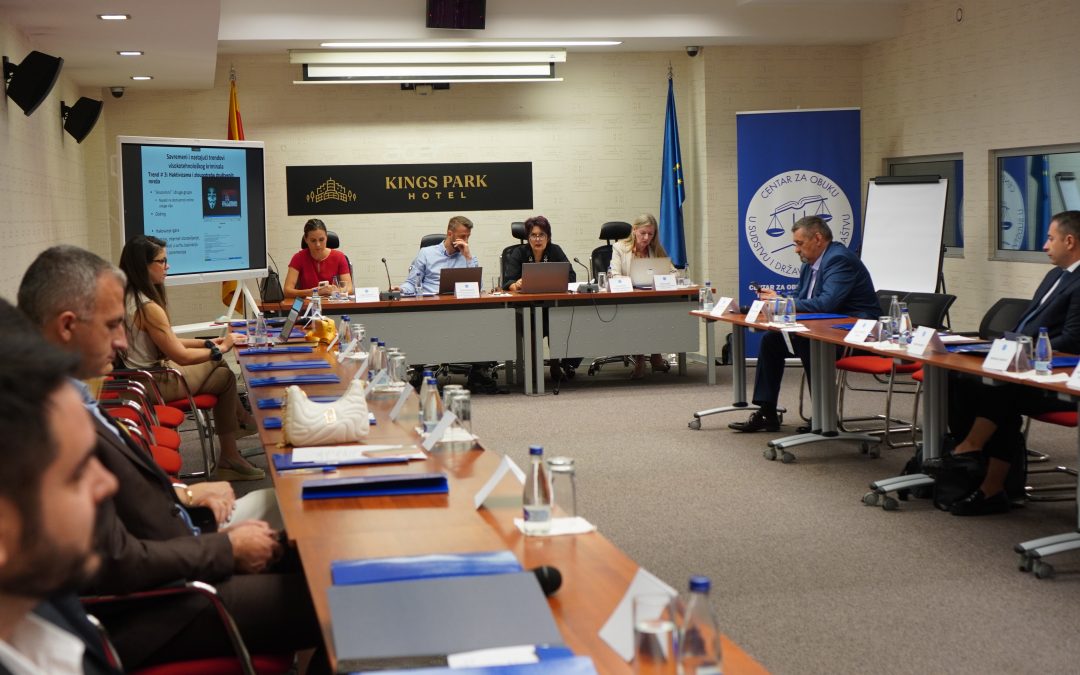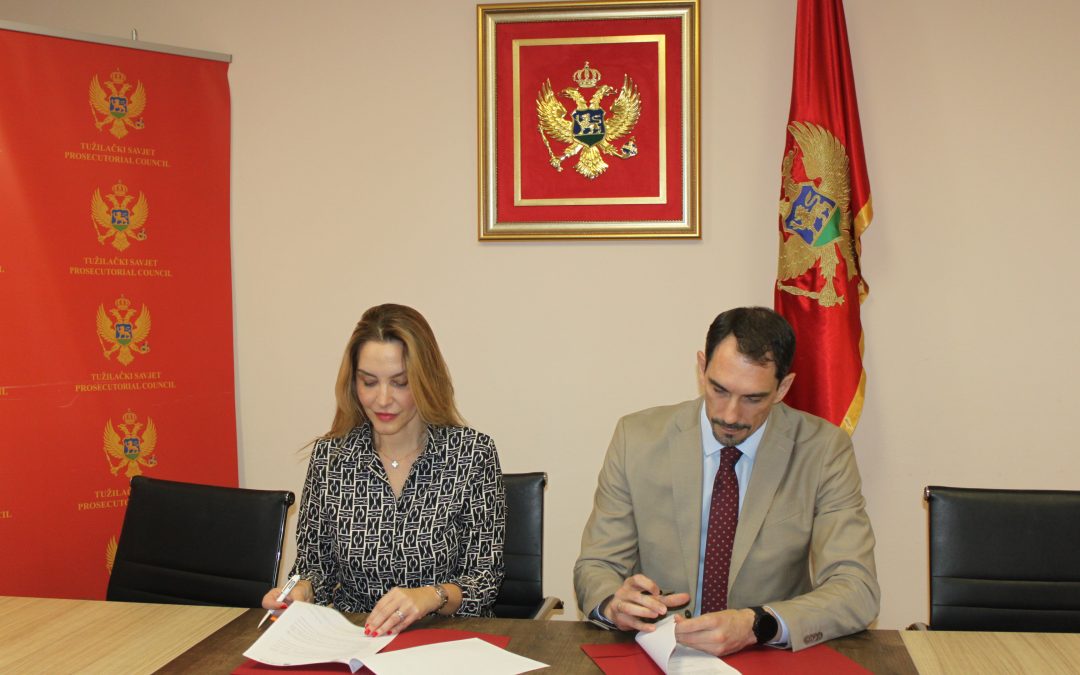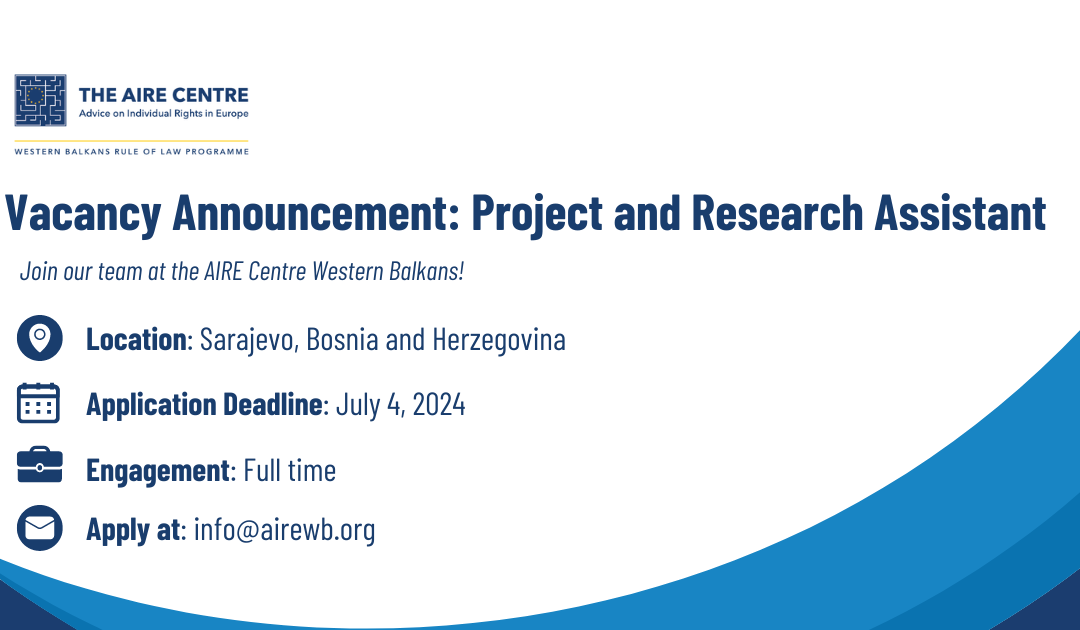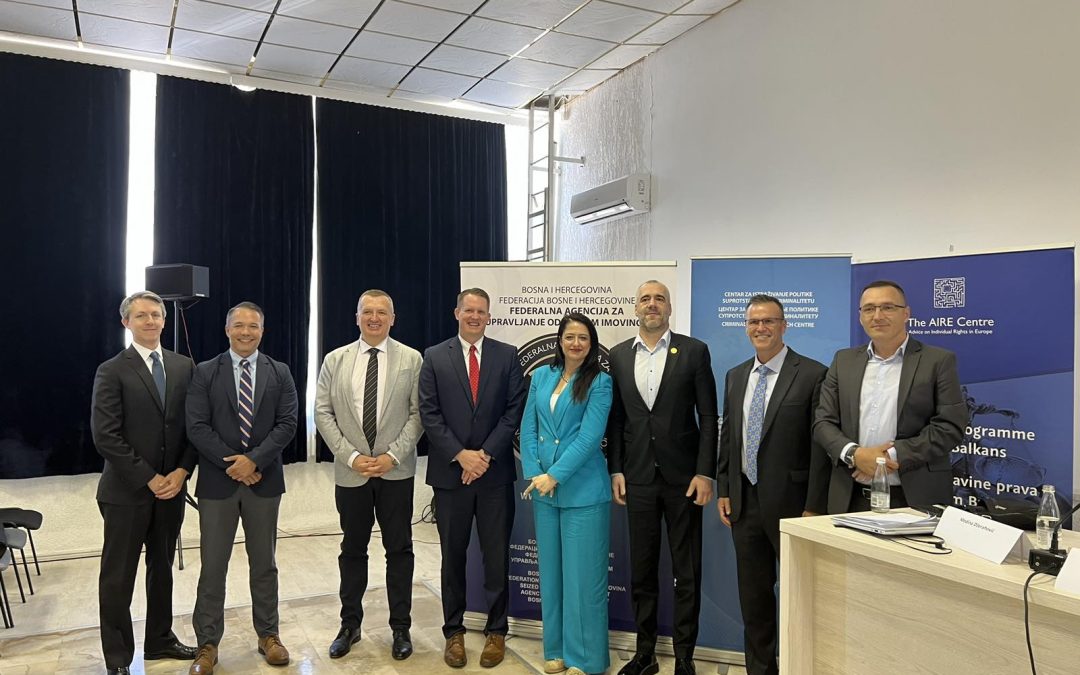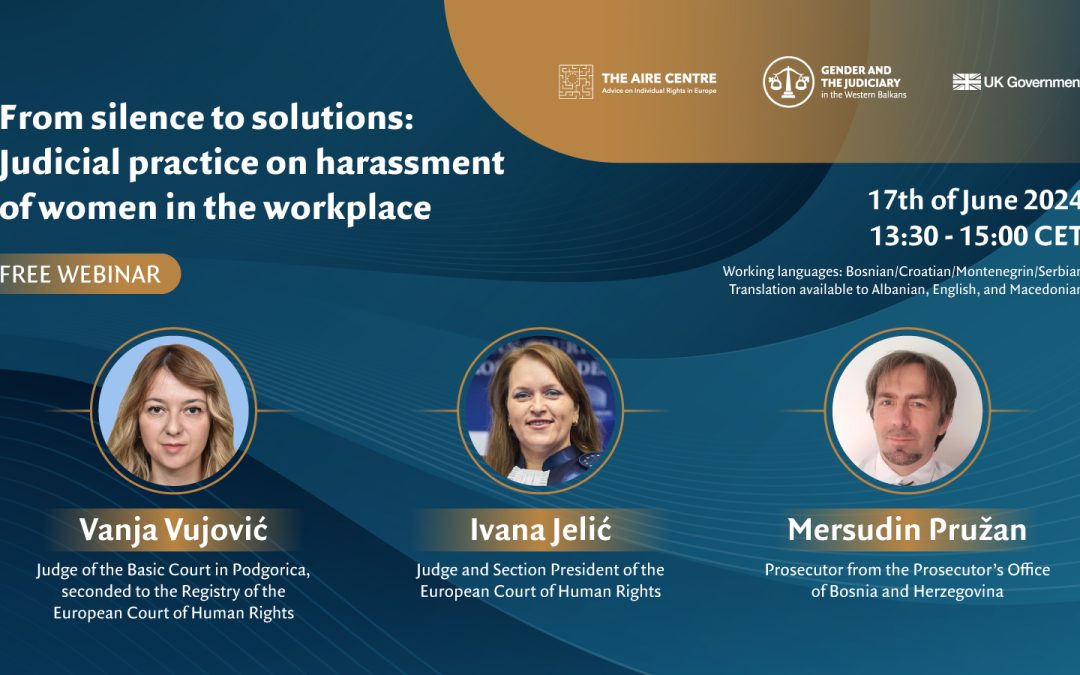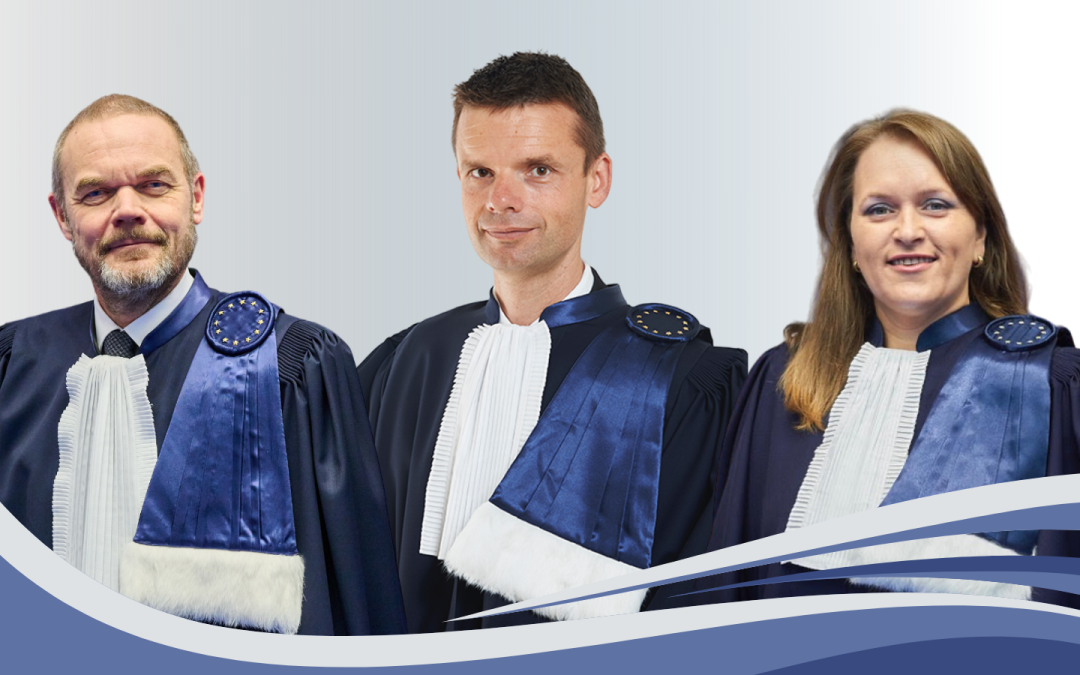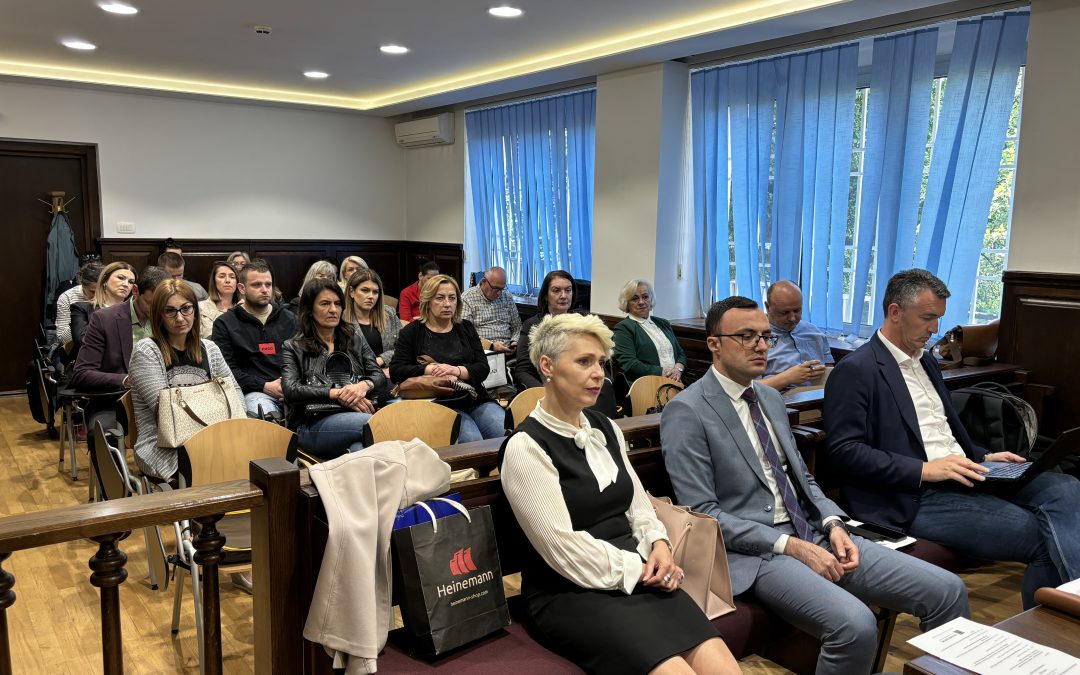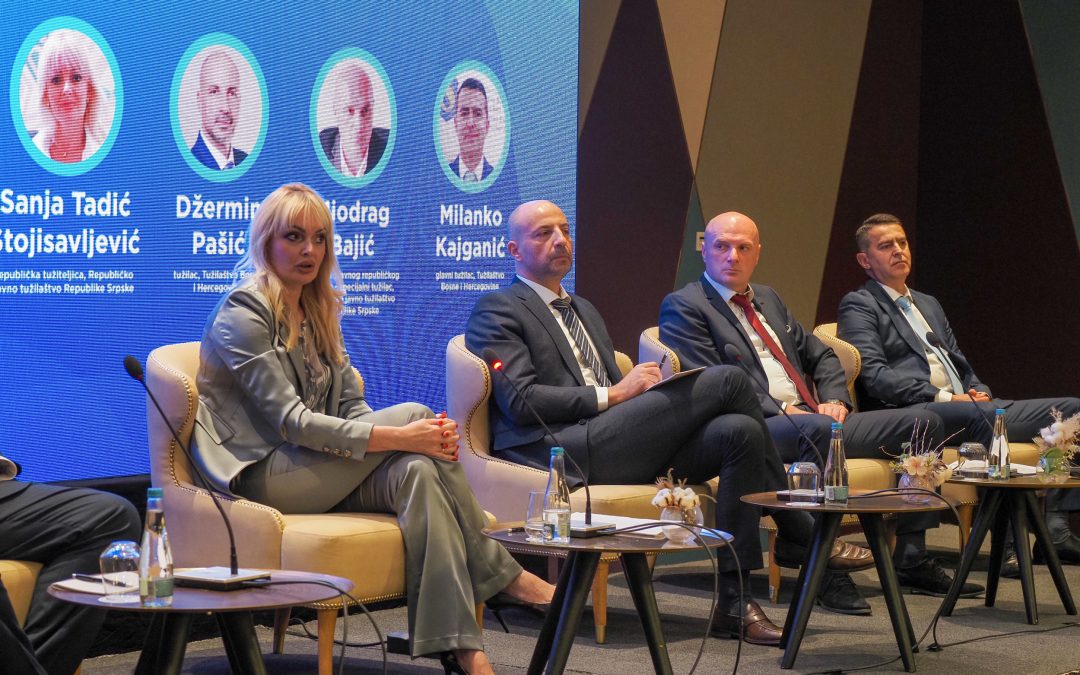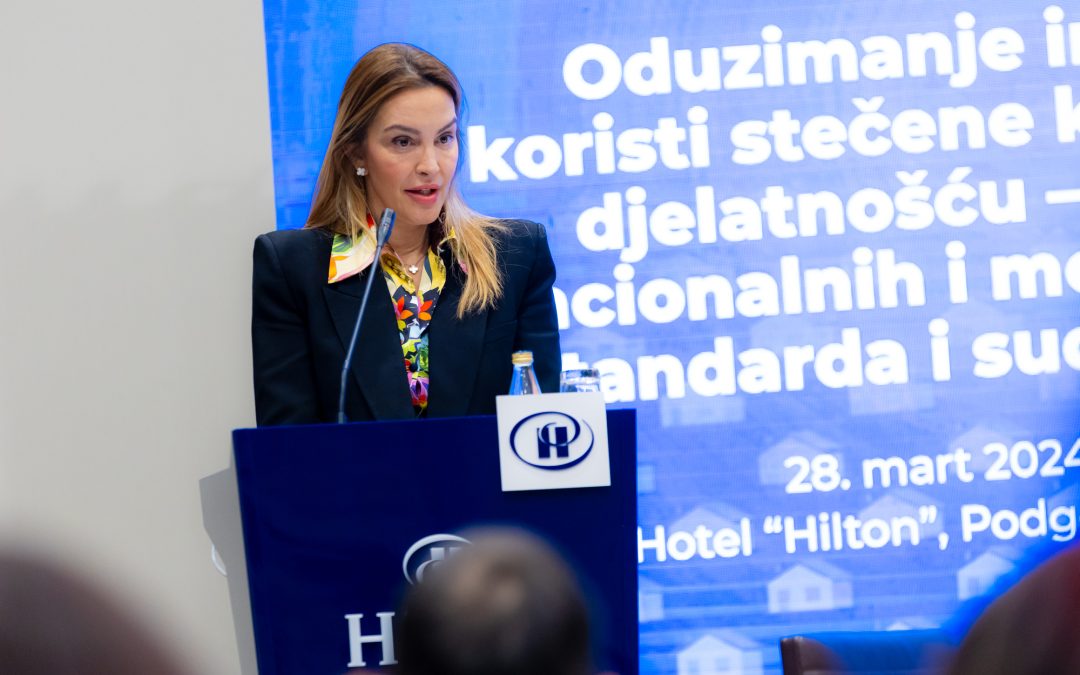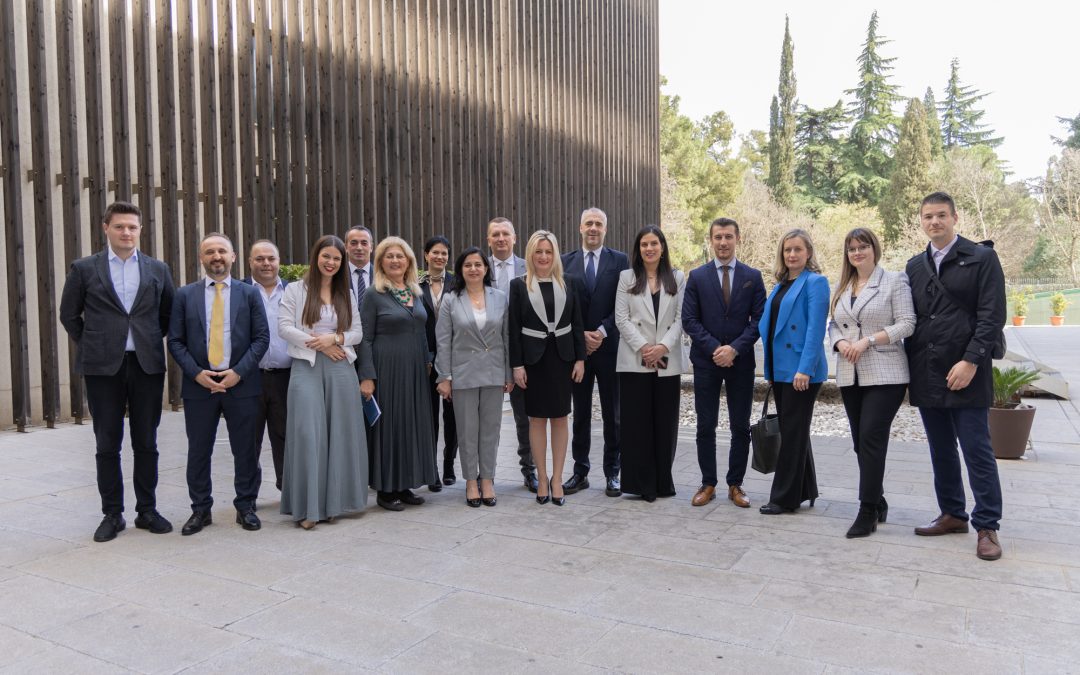On 1 and 2 April 2022, the AIRE Centre hosted the first Regional Gender Equality Forum for the Western Balkans. The Forum took place in Budva (Montenegro) and brought together the President and Vice-President of the European Court of Human Rights, the Council of Europe Commissioner for Human Rights, judges and former judges of the European Court of Human Rights and representatives from across the region including presidents and judges of supreme and constitutional courts, ombudspersons, representatives of judicial training institutes, academics and representatives from the NGO sector.
Presentations and panel discussions at the Forum distilled the key principles and requirements developed by the European Court of Human Rights in respect of gender equality and discrimination on the ground of sex. For example, panellists discussed the key substantive and procedural obligations under the European Convention on Human Rights to protect women from domestic and gender-based violence. Participants from across the region then convened in smaller, thematic working groups to reflect on the key challenges to implementing and protecting the rights of women in the domestic context. The Forum was organized by the AIRE Center with the support of the Government of the United Kingdom and Deutsche Gesellschaft für Internationale Zusammenarbeit (GIZ) GmbH.
Robert Spano, president of the European Court of Human Rights, stressed that judges have an important role to play in resisting stereotypes, breaking down prejudices and developing awareness of gender equality.
“In this way, we all contribute to the gender equality, which is of key importance for the functioning of democracy and good governance, as well as for the improvement of well-being for all,” said President Spano.
In her introductory address, Dunja Mijatović, Commissioner for Human Rights of the Council of Europe, emphasized that violence against women, including domestic violence, “will become a scourge of the past only if we work together to combat structural and intersectional discrimination and achieve gender equality.”
“In times of great challenges, which further exacerbate the violence and discrimination that women and girls face on a daily basis, the Istanbul Convention remains our beacon in eradicating this phenomenon, challenging the patriarchal attitudes that enable it, protecting victims and punishing perpetrators and raising awareness of its effects. to women and girls, as to society as a whole, “added Commissioner Mijatović.
The forum provided an opportunity for judges and legal experts to talk about gender equality, gender-based violence and domestic violence, as well as the application of the case law of the European Court of Human Rights in the region.
Biljana Braithwaite, director of the AIRE Center’s Western Balkans Program, said gender bias and gender stereotypes present in the judiciary affect women’s ability to exercise their rights before courts in the region.
“Apart from discussing the case law of the European Court of Human Rights, it is important to work on changing attitudes towards the roles of men and women in society, and especially within the judiciary, in order to truly ensure effective protection of human rights,” added Director Braithwaite.
Dritan Abazović, Deputy Prime Minister of Montenegro, emphasized that Montenegro, as a future member of the European Union, is fully committed to strengthening the rule of law.
“One of the foundations of a just state is the implementation of true gender equality. Our vision is a modern and prosperous society that respects and treats all its citizens in the same way “, added Vice President Abazović.
Deputy British Ambassador Steve Arrick said that we all know that the practice of sentencing for gender-based violence across the Western Balkans is inconsistent. “A wide range of mitigating circumstances is often taken into account, which leads to lower penalties for perpetrators. The result is a justice system that does not act as a strong enough deterrent to gender-based violence,” Arrick shared.
He also added that the United Kingdom has partnered with the AIRE “to see ways we can support the justice system by building an evidence base, incorporating best practices and enabling the exchange of experiences between judicial colleagues across the Western Balkans”.
Slobodan Šarić, Rule of Law Advisor on the Legal Reform for Economic Development in the Western Balkans – GIZ GmbH project, stated that the GIZ “Legal Reform for Economic Development” project, in cooperation with the Council of Europe, developed Guidelines for Gender Responsiveness in Case Judgment gender-based violence.
“This document will help judges adopt a gender-responsive approach in their work and ensure that they interpret laws in accordance with the essential concepts of equality and international human rights,” added advisor Šarić.
The AIRE Centre, in collaboration with Judge Ivana Jelić, prepared a new guide on the relevant jurisprudence of the European Court of Human Rights in respect of Gender Equality and Discrimination on the Grounds of Sex.
